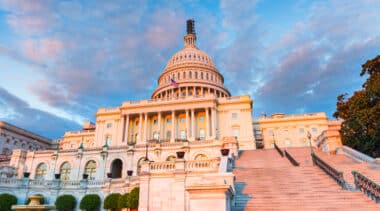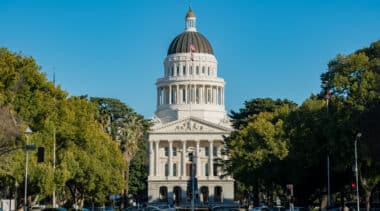Jen Sidorova is a policy analyst at Reason Foundation.
Her areas of expertise include technology policy, pension reform, recruitment and retention of public sector employees, and housing regulation.
Sidorova's work has been published in the Buffalo News, Governing and Fox News, The Washington Times, Orange County Register, The Atlanta Journal-Constitution, NJ.com,
Jen's recent academic work has been presented at panels at the 45th APPAM Fall Research Conference, The 2024 Workshop on the Economics of Information Security (WEIS), as well as the International Studies Association 2024 Annual Convention.
Her recent chapter on "Military cybercapacity: measures, drivers and effects" was published in the Research Handbook of Cyberwarfare.
Her policy analysis has been featured by Equable, Carolina Journal, The Foundation for Economic Education, and Georgia Public Policy Foundation.
Her latest film on rent regulation, “Shabbification: The Story of Rent Control," is featured at the Anthem Film Festival in Las Vegas.
Sidorova holds Master of Arts degrees in economics and political science from Stony Brook University. She is an alumnus of the Oskar Morgenstern Fellowship at the Mercatus Center, as well as the Cybersecurity Summer Institute at Georgia Tech.
-
Pennsylvania House Bill 78 would protect consumer information and privacy, but needs reform
House Bill 78 should be amended to raise the applicability thresholds so they match the upper threshold common in other states.
-
The decade of regulation: How New York City’s housing policies fueled rental inflation
Understanding how regulatory layering has driven rental inflation in New York City is critical to forging solutions that restore the rental market.
-
Mamdani’s rent freeze: Politics, policy, and the fate of small property owners
If the goal is truly to help tenants, reforming the 2019 Housing Stability and Tenant Protection Act may be a more immediate, effective, and sustainable path.
-
Gen Z’s privacy preferences and the future of data privacy
Gen Z habits illuminate a broader truth about modern privacy: people want agency, adaptability, and meaningful control over their data.
-
Why “good cause” or “just cause” eviction risks undermine housing markets
New York recently passed a law significantly restricting landlords’ ability to remove tenants and imposing new limits on rent increases.
-
Consent requirements in comprehensive data privacy laws: Current practices and the path forward
Privacy laws worldwide increasingly rely on user consent as the primary mechanism for governing data collection, processing, and sharing.
-
Overview of state-level cybersecurity legislation
The data exhibits a clear upward trajectory in cybersecurity legislation, peaking notably in 2023 with an impressive 529 bills introduced in a single year.
-
Top 3 cybersecurity policy priorities for the Trump administration
The Trump administration should prioritize establishing clear, unified cybersecurity standards, allowing for tailored approaches within specific sectors.
-
Washington state rent control bill will shrink housing supply and worsen affordability
Washington state's experiment with rent control is a fundamentally flawed solution to housing affordability.
-
Best practices in building a federal comprehensive data privacy and security framework
Reason Foundation submitted comments to the Privacy Working Group in response to a request for information.
-
Proposed artificial intelligence legislation would drive innovation out of Texas
The Texas Responsible Artificial Intelligence Governance Act introduces sweeping obligations for developers and businesses that depend on AI.
-
AI data centers must balance innovation, regulation, and energy demands
Policymakers face a pressing challenge: enabling AI growth while addressing grid strain, regulatory barriers, and workforce needs.
-
Unintended consequences of rent control
Interviews with landlords and videos of their properties show the unintended but devastating effects rent control has had on housing stock in New York.
-
Rent control implications and policy alternatives
Seven states currently have rent control laws, and 20 states introduced bills related to rent control in 2024.
-
Teachers Retirement System of Georgia posts strong investment returns, still needs major reforms
TRS has $27.7 billion in debt and is far from reaching full funding.
-
Why California’s AI bill could hurt more than it helps
The law would slow down critical AI advancements in health care, education, and other fields by discouraging innovation and reducing competition.
-
California’s Senate Bill 1047 is a troubling development for AI governance
The bill could potentially criminalize the development and use of open-source AI models, which commonly involve adapting and enhancing existing models to create new applications.
-
Overview of state digital privacy regulations
Fifteen states have enacted comprehensive data privacy laws, but variations in regulation have led to federal legislative efforts representing a more uniform approach.


















